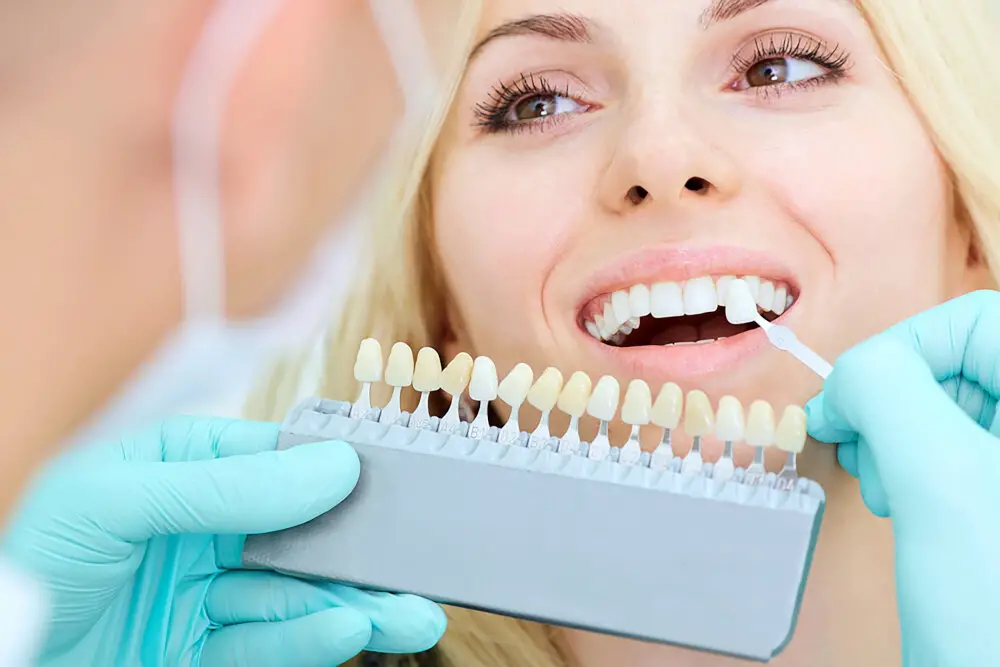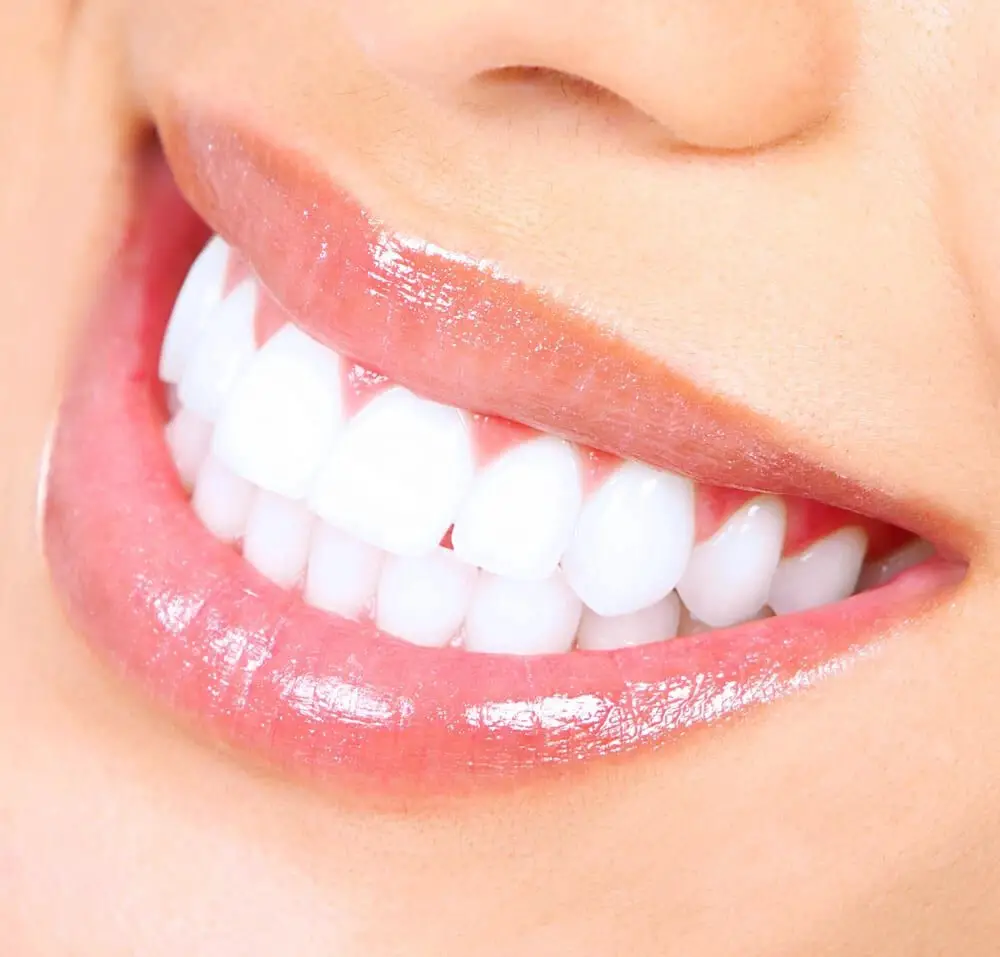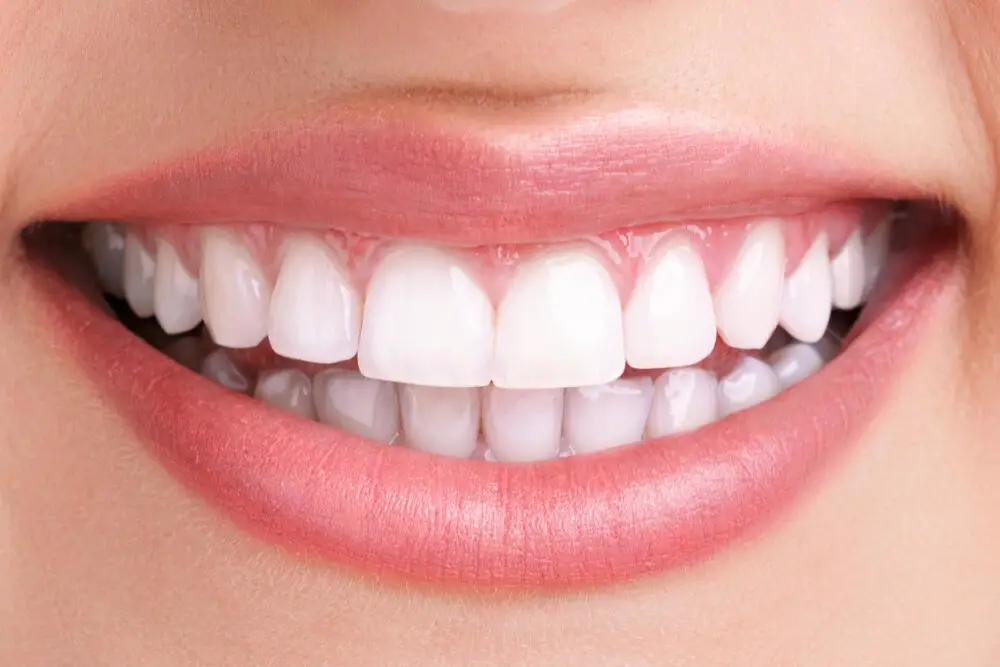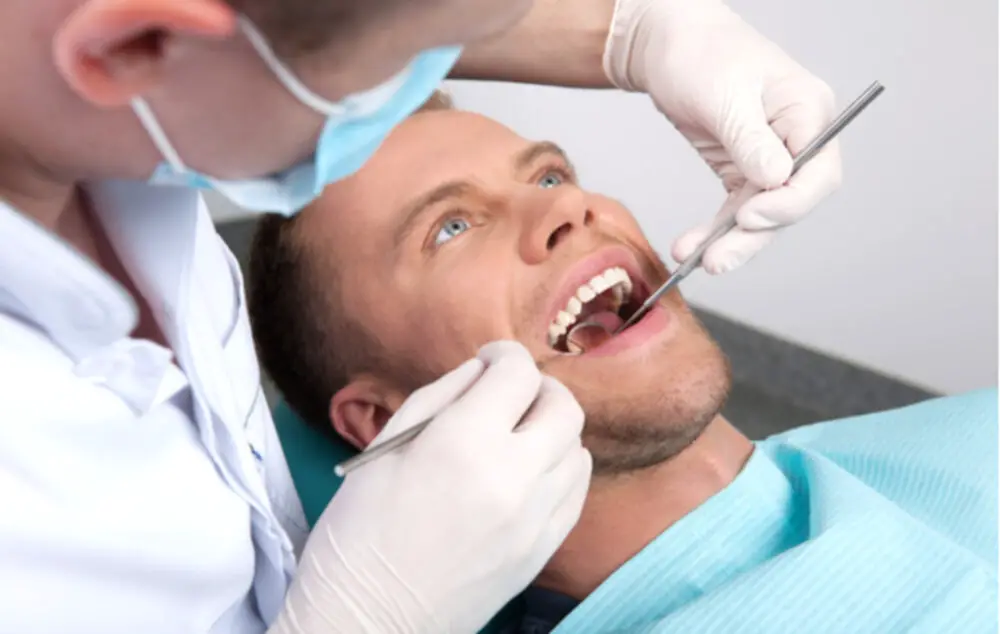Why Cold Causes Upper Teeth Pain: Explained by Dental Experts

Cold weather can be refreshing, but it can also trigger an unpleasant sensation in the mouth. Many people experience upper teeth pain when exposed to cold temperatures, and this can be quite discomforting. It’s not just a random occurrence, and there are scientific explanations as to why this happens. Dental experts have studied this phenomenon and have uncovered some interesting facts about why cold causes upper teeth pain. The teeth are sensitive structures, and they can react to different stimuli, including temperature changes. When exposed to cold air or food, the teeth can respond in various ways, including pain. The upper teeth are particularly prone to this sensation, and it can be attributed to various factors, such as tooth decay, gum recession, and enamel erosion. Understanding why cold causes upper teeth pain can help people take measures to prevent it and keep their teeth healthy and pain-free. In this article, we will explore the reasons behind this phenomenon and what you can do to avoid it.
Experiencing teeth pain related to cold temperatures is a common issue faced by many individuals. This dental discomfort occurs when the nerves inside the teeth become exposed to cold stimuli, leading to a sharp, shooting pain that can be quite intense. The pain may be felt in one tooth or multiple teeth, and it can last for a few seconds to several minutes. Dental experts explain that this type of pain is usually due to enamel erosion, gum recession, or tooth decay. These conditions can cause the underlying dentin layer to become exposed, which contains microscopic tubules that lead to the nerves inside the teeth. The cold temperatures can then trigger a pain response as the nerves become stimulated. Patients may also experience sensitivity to hot or sweet foods and drinks, and the pain may worsen over time if left untreated.
Tooth anatomy is a complex structure consisting of several layers of tissues. The outermost layer of the tooth is the enamel, which is the hardest and most mineralized tissue in the human body. The next layer is the dentin, which is a softer tissue that contains tiny tubes called dentinal tubules. These tubules are filled with nerve fibers that transmit sensations to the pulp, the innermost layer of the tooth. The pulp contains blood vessels, nerves, and connective tissues that provide nutrients and support to the tooth. Tooth sensitivity occurs when the dentin is exposed to external stimuli such as cold air or liquids. This can happen as a result of enamel erosion, gum recession, or tooth decay. When the dentin is exposed, the nerve fibers in the dentinal tubules are stimulated, causing pain or discomfort. Dental experts recommend using desensitizing toothpaste, avoiding acidic foods and drinks, and maintaining good oral hygiene to prevent tooth sensitivity.
What Causes Teeth Sensitivity?

Tooth sensitivity is a common dental issue that affects millions of people worldwide. It is characterized by a sharp and sudden pain that occurs when your teeth are exposed to hot or cold temperatures, sweet or acidic foods, or even when you brush or floss your teeth. The sensitivity is caused by the exposure of the dentin layer of your teeth, which contains tiny tubes that lead to the tooth’s nerve. When the dentin is exposed, the nerve is triggered, causing pain and discomfort. The most common causes of tooth sensitivity include tooth decay, gum disease, teeth grinding, dental erosion, and overbrushing. It is crucial to visit your dentist if you experience tooth sensitivity to identify the underlying cause and get appropriate treatment. One of the most common reasons for upper teeth pain when exposed to cold is due to a condition called dentin hypersensitivity. This condition occurs when the dentin layer of your teeth is exposed, leading to pain and sensitivity. Cold temperatures can trigger the nerve endings in the teeth, causing sharp and sudden pain. Other factors that can contribute to dentin hypersensitivity include gum recession, tooth decay, and tooth erosion. It is essential to maintain good oral hygiene practices, such as brushing and flossing regularly and using a toothbrush with soft bristles to prevent further damage to the teeth and gums. Additionally, using a desensitizing toothpaste can help reduce tooth sensitivity and alleviate discomfort.
Tooth enamel and dentin are the two primary layers that protect the tooth from external stimuli. Tooth enamel is the hard, outermost layer that covers the visible portion of the tooth, while dentin is a softer, inner layer that lies beneath the enamel. Enamel acts as a shield, protecting the tooth from mechanical and chemical damage caused by chewing and acidic substances. Dentin, on the other hand, contains tiny tubes called dentinal tubules that connect the inner pulp of the tooth to the outside. These tubes can transmit sensations, such as temperature changes or pressure, to the nerves in the pulp. Together, enamel and dentin create a barrier that shields the tooth from external harm while allowing the tooth to detect and respond to changes in its environment.
Enamel erosion and dentin exposure can be caused by a variety of factors, including poor oral hygiene, acidic foods and drinks, genetics, and teeth grinding. When enamel is worn away, it can expose the dentin, which is the softer layer of the tooth. This can lead to sensitivity to hot, cold, and sweet foods and beverages. Enamel erosion can also be caused by certain medical conditions and medications, as well as frequent vomiting or acid reflux, which can introduce stomach acid into the mouth and erode the enamel over time. Preventing enamel erosion and dentin exposure involves maintaining good oral hygiene, avoiding acidic foods and drinks, wearing a mouthguard if necessary, and seeking treatment for any underlying medical conditions.
The nerve endings in teeth are highly sensitive, and temperature changes can cause them to respond in various ways. Teeth are composed of different layers, and the innermost layer, called the pulp, contains blood vessels and nerves that provide sensation to the tooth. When a tooth is exposed to cold temperatures, the nerve endings can become irritated, leading to sharp pain or discomfort. This is because the cold causes the blood vessels in the pulp to constrict, which causes a decrease in blood flow and oxygen supply to the nerves. As a result, the nerve endings become hypersensitive and can transmit pain signals to the brain. In some cases, the pain can be so severe that it may require dental intervention to address the underlying cause.
How Cold Temperatures Affect Teeth

Cold temperatures can have a significant impact on teeth, causing discomfort and even pain in some cases. When teeth are exposed to cold air or beverages, the nerves in the teeth can become more sensitive, leading to a sharp, shooting pain that can be difficult to ignore. This sensitivity can be particularly pronounced in the upper teeth, which are more exposed to the elements and may be more susceptible to temperature changes. Additionally, cold temperatures can cause the gums to contract, which can lead to further discomfort and sensitivity in the teeth. One of the main reasons that cold temperatures affect teeth is due to the structure of the teeth themselves. Teeth are made up of several layers, including enamel, dentin, and pulp. The enamel is the outer layer of the tooth, and it is designed to protect the more sensitive layers beneath it. However, when the enamel is worn down or damaged, the more sensitive layers of the tooth can become exposed, leading to increased sensitivity and discomfort. Additionally, changes in temperature can cause the dentin, which is the layer beneath the enamel, to expand and contract, which can place pressure on the nerves in the tooth and lead to pain. Understanding the ways in which cold temperatures affect teeth can help individuals take steps to protect their teeth and reduce discomfort when exposed to colder temperatures.
Cold temperatures can cause teeth pain due to the exposure of the teeth’s nerve endings. When cold air or liquids come into contact with the teeth, it causes the enamel to contract, which can lead to tiny cracks or fissures in the teeth’s surface. These cracks can expose the sensitive dentin layer underneath, which contains nerve endings that are extremely susceptible to temperature changes. As a result, when cold air or liquids come in contact with the exposed dentin, it can cause a sharp, shooting pain in the affected tooth or teeth. Additionally, people who have gum recession or enamel erosion are more prone to experiencing tooth sensitivity and pain due to cold temperatures.
When our teeth are exposed to cold temperatures, such as biting into ice cream or drinking cold water, we can experience a sharp, shooting pain in our upper teeth. This sensation is caused by a physical process known as thermal conductivity. Teeth are made up of different layers, including enamel, dentin, and pulp. Enamel is the outermost layer and is the hardest substance in the body. However, it is not a good conductor of heat, so when cold temperatures are applied to the teeth, the enamel does not transmit the temperature change to the dentin and pulp layers underneath. Instead, the temperature change causes the fluids within the dentin and pulp to contract and expand, putting pressure on the nerve endings within the tooth, resulting in the sharp pain we feel.
Tips for Managing Teeth Sensitivity

Teeth sensitivity can be a frustrating and painful experience for many people. Fortunately, there are several tips and techniques that can help manage this condition. One of the best ways to manage sensitivity is to maintain good dental hygiene. Brushing and flossing regularly can help remove plaque and bacteria that can contribute to sensitivity. It is also important to use a soft-bristled toothbrush and to avoid brushing too hard, as this can wear down the enamel and expose the sensitive inner layers of the teeth. Another effective way to manage sensitivity is to avoid certain foods and drinks that can trigger pain. Acidic foods and drinks, such as citrus fruits and soda, can erode enamel and exacerbate sensitivity. Hot and cold foods and drinks can also be problematic, so it is best to consume them at a moderate temperature. Additionally, using a desensitizing toothpaste or mouthwash can help reduce sensitivity by blocking the pain signals that travel to the nerves in the teeth. Overall, managing teeth sensitivity requires a combination of good dental hygiene, dietary changes, and the use of specialized dental products.
To prevent and manage teeth sensitivity caused by cold temperatures, dental experts recommend a few simple steps. Firstly, brushing and flossing regularly can help to prevent the build-up of plaque on the teeth, which can contribute to sensitivity. Secondly, using a toothpaste specifically designed for sensitive teeth can help to reduce sensitivity over time. Thirdly, avoiding foods and drinks that are very cold or very hot can help to prevent sudden shocks to the teeth. Finally, if sensitivity persists, it is important to visit a dentist to rule out any underlying dental problems that may be causing the sensitivity. By taking these steps, it is possible to manage and prevent teeth sensitivity caused by cold temperatures, allowing you to enjoy your favorite cold treats without discomfort.
Dental discomfort can be a frustrating and painful experience. Fortunately, there are various dental products and procedures that can help alleviate the pain caused by cold sensitivity. For instance, desensitizing toothpaste can be effective in blocking pain signals and reducing sensitivity. Fluoride treatments can also help strengthen tooth enamel and reduce sensitivity. Dental bonding, which involves applying a tooth-colored resin to the affected tooth, is another option that can provide relief. Additionally, dental crowns or inlays may be recommended for more severe cases. These procedures can help protect the tooth and prevent further damage. Overall, it is important to consult with a dental professional to determine the best course of action for addressing dental discomfort.
When to Seek Professional Help

Experiencing upper teeth pain due to cold can be a common occurrence for many people, but it is important to know when to seek professional help. If the pain is persistent, severe or accompanied by other symptoms such as fever, swelling, or bleeding, it is recommended to see a dental professional as soon as possible. These symptoms could indicate a more serious dental issue or infection that requires immediate attention. Ignoring these symptoms could lead to further complications and potential tooth loss. Additionally, if you have tried at-home remedies such as applying a warm compress or using pain medication and the pain persists, it’s time to seek professional help. A dental professional can conduct a thorough examination and diagnose the underlying cause of your pain. They can provide treatment options that are tailored to your specific needs and ensure that you receive the appropriate care to relieve your discomfort. Remember, seeking professional help early on can prevent further damage and provide the best chance of preserving your dental health.
Teeth sensitivity caused by cold temperatures can sometimes indicate a more serious dental issue, such as tooth decay, gum disease, or cracked teeth. When the enamel of the tooth is worn down or the gum tissue is receding, the underlying dentin and nerves become exposed, leading to sensitivity. If left untreated, these issues can worsen and lead to more severe dental problems. It is important to visit a dentist if you are experiencing persistent sensitivity or pain in your teeth, especially when exposed to cold temperatures. The dentist can assess the issue and recommend appropriate treatment to prevent further damage and alleviate discomfort.
Dental sensitivity or tooth sensitivity is a common problem that can cause discomfort and pain. It occurs when the enamel on the teeth is worn away, exposing the underlying dentin, which contains tiny nerve endings. Some of the common dental problems that can cause tooth sensitivity include cavities, gum recession, cracked or chipped teeth, enamel erosion due to acidic foods or drinks, and grinding or clenching of teeth. These issues can expose the sensitive nerves in the teeth, resulting in pain or discomfort when eating or drinking hot, cold, sweet, or sour foods and beverages. It is essential to identify the underlying dental problem causing tooth sensitivity and seek appropriate treatment to alleviate the discomfort and prevent further damage to the teeth.
Teeth sensitivity, particularly in response to cold temperatures, is a common dental issue affecting millions of people worldwide. It is caused by various factors, including exposed dentin, tooth decay, gum recession, and enamel erosion. The cold temperature triggers nerve endings in the teeth, leading to a sharp, shooting pain that can last for several seconds. The pain can be debilitating, making it difficult to enjoy cold foods or drinks. In some cases, people may experience toothaches, headaches, and jaw pain. If left untreated, teeth sensitivity can lead to more severe dental problems, such as tooth decay, gum disease, and even tooth loss. Dental experts recommend seeking immediate treatment to prevent further damage to the teeth and gums.
In conclusion, managing and preventing discomfort caused by cold sensitivity in teeth requires a combination of proper dental hygiene, preventative measures, and seeking professional dental care. Regular brushing, flossing, and using fluoride toothpaste can help prevent sensitivity by strengthening enamel and reducing plaque buildup. Avoiding acidic and sugary foods and drinks can also decrease the risk of tooth decay and sensitivity. Additionally, wearing a mouthguard during physical activities and seeking prompt treatment for dental issues can prevent further damage to teeth and reduce discomfort. By taking these steps, individuals can maintain good dental health and prevent the pain and discomfort associated with cold sensitivity in teeth.
Conclusion

In conclusion, cold-induced upper teeth pain can be a discomforting experience for many individuals. Dental experts explain that this sensation is caused by the exposure of the tooth’s nerves to cold temperatures. The pain can vary in intensity and duration, but it is usually a temporary issue that can be remedied by wearing warm clothing and using toothpaste designed for sensitive teeth. However, if the pain persists or becomes more severe, it is important to seek the advice of a dental professional. Overall, being aware of the causes and remedies for cold-induced upper teeth pain can help individuals manage this discomfort and maintain good oral health.







